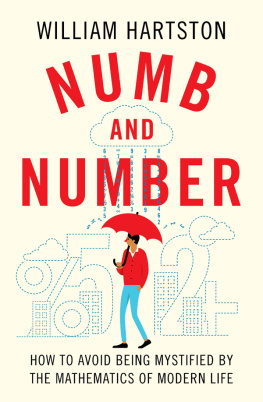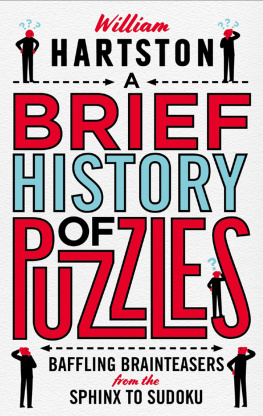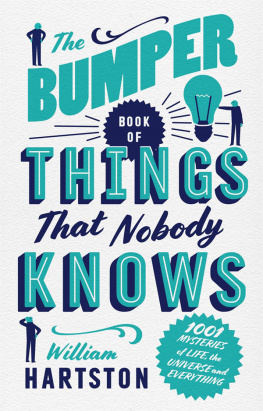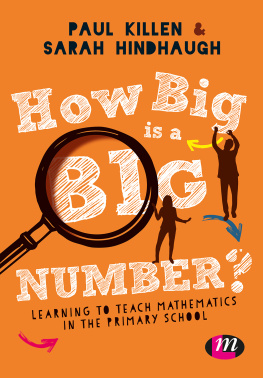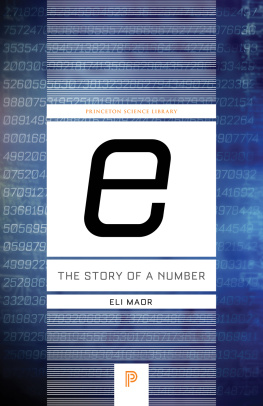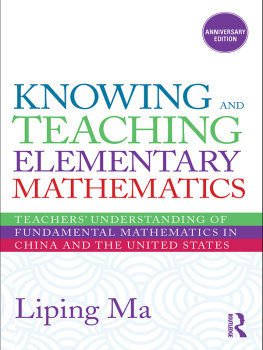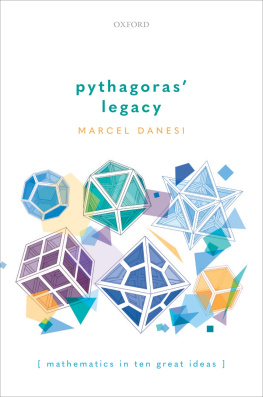Contents
Guide

By the same author
How to Cheat at Chess
The Penguin Book of Chess Openings
Soft Pawn
The Ultimate Irrelevant Encyclopedia
The Kings of Chess
Chess The Making of the Musical
The Drunken Goldfish and Other Irrelevant Scientific Research
How was it for you, Professor?
The Guinness Book of Chess Grandmasters
Teach Yourself Chess
Teach Yourself Better Chess
The Book of Numbers: The Ultimate Compendium of Facts About Figures
Mr Hartstons Most Excellent Encyclopedia of Useless Information
Forgotten Treasures: A Collection of Well-Loved Poetry (Vols 1, 2 and 3)
The Things That Nobody Knows
Even More Things That Nobody Knows
The Bumper Book of Things That Nobody Knows
Sloths
A Brief History of Puzzles

First published in Great Britain in 2020 by Atlantic Books,
an imprint of Atlantic Books Ltd.
Copyright William Hartston, 2020
The moral right of William Hartston to be identified as the author of this work has been asserted by him in accordance with the Copyright, Designs and Patents Act of 1988.
All rights reserved. No part of this publication may be reproduced, stored in a retrieval system, or transmitted in any form or by any means, electronic, mechanical, photocopying, recording, or otherwise, without the prior permission of both the copyright owner and the above publisher of this book.
1 2 3 4 5 6 7 8 9
A CIP catalogue record for this book is available from the British Library.
Hardback ISBN: 978-1-83895-084-2
E-book ISBN: 978-1-83895-086-6
Paperback ISBN: 978-1-83895-085-9
Printed in Great Britain
Atlantic Books
An Imprint of Atlantic Books Ltd Ormond House
2627 Boswell Street
London
WC1N 3JZ
www.atlantic-books.co.uk
Do not worry about your difficulties in Mathematics.
I can assure you mine are still greater.
(Albert Einstein, 1943, in a letter replying to a little girl
who was having problems with maths at school)
Contents

It has become almost a clich to remark that nobody boasts of ignorance of literature, but it is socially acceptable to boast ignorance of science and proudly claim incompetence in mathematics.
(Richard Dawkins, BBC Richard Dimbleby Lecture, 1996)
One morning in December 2019, amid the deluge of opinion polls and electoral statistics in the British newspapers, TV current affairs programmes and my email inbox, I was particularly intrigued by two news reports and one press release.
The press release informed me that 10 million people in the UK suffer from headaches regularly, while the news stories carried the information that 37% of children in Croydon live in relative poverty and that exports from China to the United States in November fell 23% from a year earlier.
We live in a world in which the news has become increasingly dominated by data and numbers, but all too often they are flung at us with insufficient information to interpret them properly. The figures may cause some concern for people with headaches, for child welfare services in Croydon and for Chinese exporters, but most of us, including those groups, rarely stop to think about what they really mean and how they were calculated. We numbly let the numbers wash over us and do not pause to consider such questions as the following:
What do they mean by suffer from headaches regularly? Do they mean frequently? Once a year is regular but it is not frequent, as headaches go. This reminds me of a sign I have occasionally seen at railway stations advertising a regular service to London. One train a week may be regular, but thats hardly a good advert for the service. And if those headaches are suffered frequently, does this mean every day, or every morning after a heavy drinking session, or whenever work piles up, or what?
And what about those Croydon children living in relative poverty?

